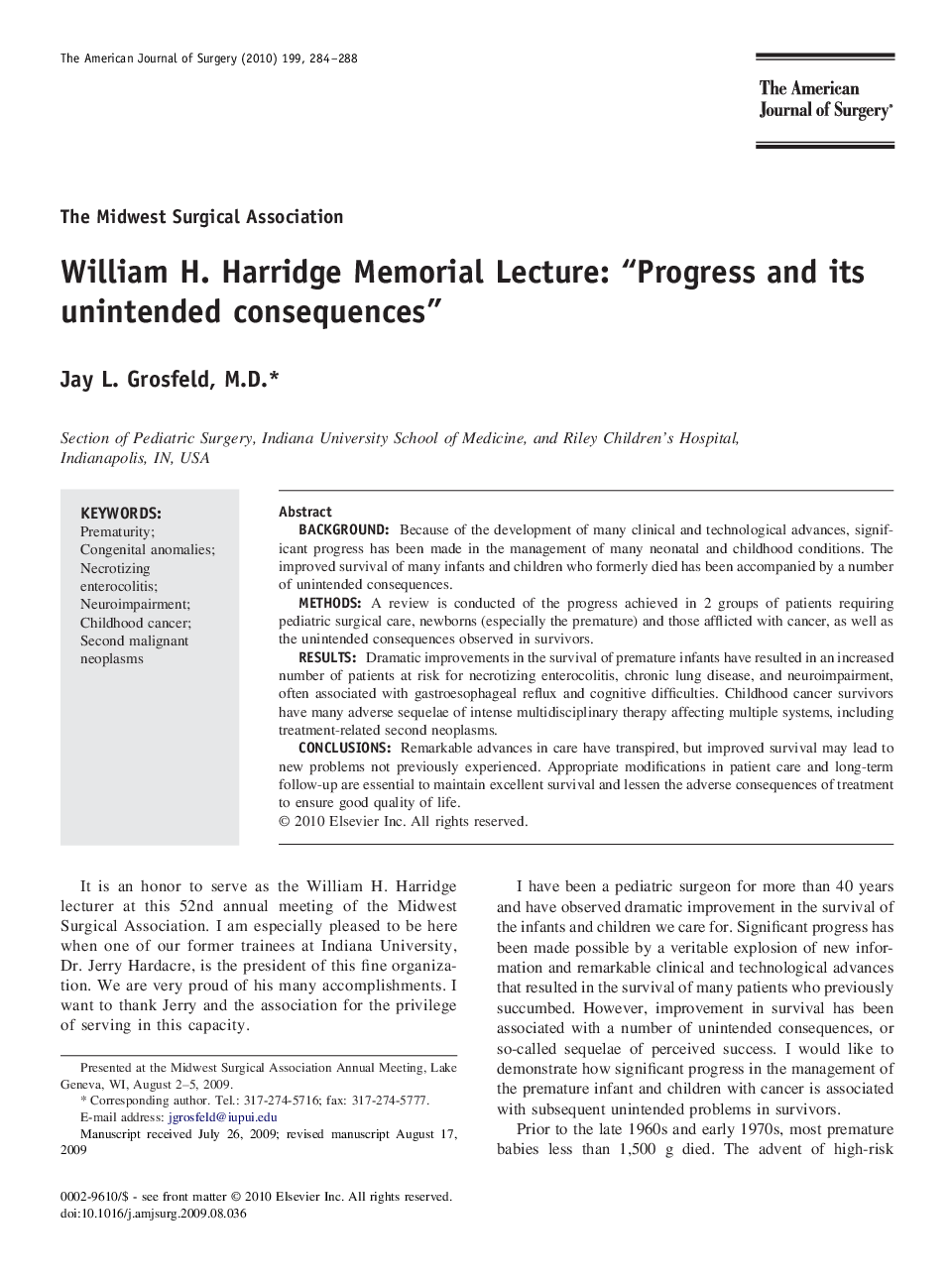| کد مقاله | کد نشریه | سال انتشار | مقاله انگلیسی | نسخه تمام متن |
|---|---|---|---|---|
| 4280595 | 1611557 | 2010 | 5 صفحه PDF | دانلود رایگان |

BackgroundBecause of the development of many clinical and technological advances, significant progress has been made in the management of many neonatal and childhood conditions. The improved survival of many infants and children who formerly died has been accompanied by a number of unintended consequences.MethodsA review is conducted of the progress achieved in 2 groups of patients requiring pediatric surgical care, newborns (especially the premature) and those afflicted with cancer, as well as the unintended consequences observed in survivors.ResultsDramatic improvements in the survival of premature infants have resulted in an increased number of patients at risk for necrotizing enterocolitis, chronic lung disease, and neuroimpairment, often associated with gastroesophageal reflux and cognitive difficulties. Childhood cancer survivors have many adverse sequelae of intense multidisciplinary therapy affecting multiple systems, including treatment-related second neoplasms.ConclusionsRemarkable advances in care have transpired, but improved survival may lead to new problems not previously experienced. Appropriate modifications in patient care and long-term follow-up are essential to maintain excellent survival and lessen the adverse consequences of treatment to ensure good quality of life.
Journal: The American Journal of Surgery - Volume 199, Issue 3, March 2010, Pages 284–288